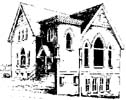|

|
 |

Supporters protest WUOT's plans to cancel two local music programs
by Joe Tarr
Tune into Live at Laurel on any given week, and who knows what you'll hear. The local show has broadcasted performances—both taped and live—from the little church theater at the corner of 16th and Laurel for nearly 20 years on WUOT-FM, Knoxville's public radio station.
Performers have included Iris DeMent, the Squirrel Nut Zippers, Jimmy Dale Gilmore, Alejandro Escovedo, Doc Watson, Finnegan's aWake, Loudon Wainright III, and Gillian Welch—and spans such diverse genres as old time country music, blues, jazz, Caribbean, gospel, Middle Eastern, folk, Zydeco, Cajun, Celtic, Irish, Asian, roots soul, swing, Latin, Tex-Mex, and good old rock 'n' roll. Many of these styles can trace their roots to East Tennessee.
Which is why supporters are baffled—and ticked off—that WUOT has announced it is canceling the program along with Music of the Southern Mountains. Administrators say they want to concentrate on their core audience, which they say tunes in more for the classical, opera, and jazz programs. Supporters counter that the two shows are among the few places East Tennesseans can tune to hear the eclectic and diverse music that has roots in this area.
"The radio station of the largest university in Appalachia has a responsibility to play some of the music of Appalachia," says Paul Campbell, creator and host of Southern Mountains—which has been on the air since 1976. "If the public radio station can't have music of the region it's located in, who is going to do that?"
A movement is brewing to save the two shows, which are scheduled to go off the air March 26. And it could spark a dispute over just what Knoxville's largest public radio station should be.
Daniel T. Berry, program director at WUOT, says the programs, which run sequentially from 8 to 10 p.m. on Fridays, are being cut because WUOT is trying to narrow its focus. Two other stations—WNCW of Spindale, N.C., and the local WDVX—broadcast the types of music heard on these programs, Berry says. "Rather than be in competition with our radio colleagues, this situation gives us the opportunity to narrow our station focus and concentrate on our core audience," Berry wrote in a letter to Jubilee Community Arts, which produces Live at Laurel free of charge for WUOT.
Elaborating in a phone interview, Berry says, "Every time you go to another kind of programming, you have a seam—one audience turns you off, another slowly turns you on. In radio, you want to eliminate as many seams as possible."
But aren't diversity and a varied audience a strength of public radio? Not anymore, Berry says. As public radio stations depend more and more on listeners for support, they must develop a narrowly focused, easily defined audience, he says.
"In our case, we get a quarter million dollars from the public. We are forced to operate more like a commercial station than we'd like," he says.
Brent Cantrell, producer of Live at Laurel, says the decisions cut against what public radio is all about—which is to offer diverse programming and educate the public about local culture.
"This part of the world was incredibly important in the development of several musical genres," Cantrell says, citing a cappella ballads, early bluegrass, blues, and string music as examples. "It's the sort of art forms that flourished in Knoxville. I think it's irresponsible for the university to not examine that. They're abdicating their role."
"It almost seems like they don't want to do anything that requires any thought other than to let the tape roll," says Don Cassell, a guitar and dobro player who has played on the show.
Berry is somewhat vague when asked what WUOT's role is. "Our mission, generally speaking, is to serve the public interest. The public interest is, of course, not defined."
Ironically, WUOT won't use the extra two hours to program more classical or jazz music. Instead, the station will broadcast Garrison Keillor's Prairie Home Companion a second time—Sunday at 2 p.m. The nationally syndicated show, also broadcast live on Saturday evenings, has featured many of the same musicians as Live at Laurel and has a similar format.
"It seems superficially to be the same thing," Berry admits. However, Prairie Home Companion is an exception to the station's philosophy because it has a "large listenership and a very generous listenership," he says.
It's a twisted logic to fans and volunteers of the local programs. "It's essentially the same type of programming, but it doesn't deal with local art. It's especially ironic that Garrison Keillor and Prairie Home Companion have long supported live radio and hometown radio—that's the whole feel of that show," Cantrell says.
For now, the future of the two programs is uncertain. Cantrell says Jubilee will try to keep Live at Laurel on the air in some form, somewhere. Campbell says if forced off WUOT, his program will die.
WDVX is one possible home for the Live at Laurel, though its audience would be greatly reduced. Signal strength is not the sole factor affecting how far away a station can be heard (tower height also has a lot to do with it). However, at 100,000 watts, WUOT simply dwarfs the other two stations and can be heard as far away as Chattanooga. WNCW rebroadcasts in the Knoxville area at about 17,000 watts, and WDVX is 200 watts.
A number of supporters, including some UT administrators, are protesting the cancellation, but they have only just begun to organize.
Berry says the station so far has had only a handful of complaints about its decision—which it appears to want to keep quiet.
In letters to the two producers, Berry wrote: "We must insist that no mention be made of the cancellation on the air before March 26, and that, even then, no attempt be made in the course of the program to rally support for or start any campaign to 'save' the show."

|